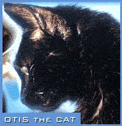Marc Bekoff —professor emeritus of Ecology and Evolutionary Biology at the University of Colorado, Boulder—discusses, in a conversation that traveled from his very latest work backwards, his current research, which involves the way various animals play, and the rules that govern that play.  He explains the importance of observing rules, whether it’s a Retriever at the dog park or a coyote in the wild, and how an animal that violates those rules, that doesn’t play fair, quickly earns a reputation as an unfair player. Which, in turn, can lead to that animal being ostracized from that group and this, Bekoff says, can lead to those exiled animals experiencing higher mortality than their counterparts.
He explains the importance of observing rules, whether it’s a Retriever at the dog park or a coyote in the wild, and how an animal that violates those rules, that doesn’t play fair, quickly earns a reputation as an unfair player. Which, in turn, can lead to that animal being ostracized from that group and this, Bekoff says, can lead to those exiled animals experiencing higher mortality than their counterparts.  Bekoff notes along the way what this research teaches us about human behavior and interaction, pointing out that kids engage in similar rituals and follow similar rules on the schoolyard and elsewhere. As one of the featured speakers scheduled to deliver present at the forthcoming Farmed Animal Conference E-Summit (FACES), a free online symposium organized by Animal Place, and including such other prominent figures as Peter Singer, Neal Barnard, and Anita Krajnc, Bekoff offers a sneak of his talk, entitled “Farmed Animal Emotions.” Additionally, as an author or co-author who’s published 31 books, Bekoff outlines the subject matter of “Dogs Gone Wild,” the forthcoming book he co-wrote with occasional collaborator Jessica Pierce, with, he imagines, a publishing date of summer or fall of 2021. (https://marcbekoff.com)
Bekoff notes along the way what this research teaches us about human behavior and interaction, pointing out that kids engage in similar rituals and follow similar rules on the schoolyard and elsewhere. As one of the featured speakers scheduled to deliver present at the forthcoming Farmed Animal Conference E-Summit (FACES), a free online symposium organized by Animal Place, and including such other prominent figures as Peter Singer, Neal Barnard, and Anita Krajnc, Bekoff offers a sneak of his talk, entitled “Farmed Animal Emotions.” Additionally, as an author or co-author who’s published 31 books, Bekoff outlines the subject matter of “Dogs Gone Wild,” the forthcoming book he co-wrote with occasional collaborator Jessica Pierce, with, he imagines, a publishing date of summer or fall of 2021. (https://marcbekoff.com)

ALSO: I spoke briefly with Rob Whitehair, CEO and co-founder of Mammalz, a new app that enables you to use your smart phone to become a nature photographer or filmmaker, who can share your images with like-minded folks anywhere, and they with you. Whitehair responds to my question about how posting to Mammalz differs from someone posting their wildlife photos or videos on their social media pages. He likens Mammalz more to a very nature-specific YouTube with elements of Instagram and Facebook, but adds that in developing Mammalz, he and his colleagues looked to other platforms, like Twitch. A major by-product of that examination, Whitehair says, was arriving at a way to monetize some of the Mammalz users’ images, with so-called “Seeds.” (https://community.mammalz.com, https://www.instagram.com/mammalzpbc/, https://www.facebook.com/mammalzpbc/)
COMEDY CORNER: Robert Schimmel’s “Punching A Shark In The Nose”
MUSIC: Rebekah Pulley’s “Talking Animals Theme,” instrumentals
NAME THAT ANIMAL TUNE: We didn’t play “Name That Animal Tune” today.
AUDIO ARCHIVE:
Listen Online Now:



